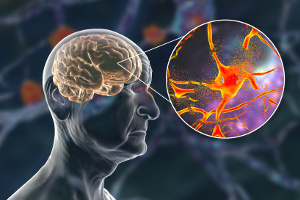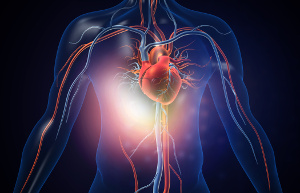afterLoad (456.28KB) (3.07ms)
afterInitialise (1.27MB) (26.25ms)
afterRoute (840.5KB) (13.24ms)
beforeRenderComponent com_tags (20.62KB) (233μs)
afterRenderComponent com_tags (2.48MB) (136ms)
afterDispatch (27.52KB) (5.5ms)
beforeRenderRawModule mod_articles_category (READ MORE...) (423.86KB) (21.02ms)
Before Access::preloadComponents (all components) (50.9KB) (1.49ms)
After Access::preloadComponents (all components) (103.05KB) (2.48ms)
Before Access::getAssetRules (id:8 name:com_content) (840B) (20μs)
After Access::getAssetRules (id:8 name:com_content) (7.05KB) (42μs)
afterRenderRawModule mod_articles_category (READ MORE...) (3.52KB) (168ms)
beforeRenderRawModule mod_custom (BOOST YOUR IMMUNE DEFENSE) (6.45KB) (32μs)
afterRenderRawModule mod_custom (BOOST YOUR IMMUNE DEFENSE) (3.8KB) (212μs)
beforeRenderRawModule mod_tags_popular (Search) (2.36KB) (17μs)
afterRenderRawModule mod_tags_popular (Search) (40.85KB) (193ms)
beforeRenderRawModule mod_custom (Get additionel and more detailed knowledge ) (816B) (1.08ms)
afterRenderRawModule mod_custom (Get additionel and more detailed knowledge ) (1.55KB) (57μs)
beforeRenderRawModule mod_custom (Overview of vitamins, minerals, and essential fatty acids) (768B) (14μs)
afterRenderRawModule mod_custom (Overview of vitamins, minerals, and essential fatty acids) (960B) (24μs)
beforeRenderRawModule mod_custom (Q10 goes by many names) (608B) (10μs)
afterRenderRawModule mod_custom (Q10 goes by many names) (928B) (19μs)
beforeRenderRawModule mod_custom (Check this before you buy a Q10 product) (752B) (9μs)
afterRenderRawModule mod_custom (Check this before you buy a Q10 product) (944B) (18μs)
beforeRenderRawModule mod_custom (Are you taking supplements) (736B) (8μs)
afterRenderRawModule mod_custom (Are you taking supplements) (1.03KB) (18μs)
beforeRenderRawModule mod_custom (Weight loss that works) (736B) (9μs)
afterRenderRawModule mod_custom (Weight loss that works) (1.03KB) (18μs)
beforeRenderRawModule mod_custom (Antiaging) (720B) (8μs)
afterRenderRawModule mod_custom (Antiaging) (912B) (17μs)
beforeRenderRawModule mod_menu (Are you getting enough vitamins and minerals?) (2.5KB) (12μs)
afterRenderRawModule mod_menu (Are you getting enough vitamins and minerals?) (22.39KB) (438μs)
beforeRenderRawModule mod_menu (The key to increased well-being) (736B) (16μs)
afterRenderRawModule mod_menu (The key to increased well-being) (17.83KB) (227μs)
beforeRenderRawModule mod_menu (Did you know.....) (720B) (14μs)
afterRenderRawModule mod_menu (Did you know.....) (25.52KB) (5.8ms)
beforeRenderRawModule mod_custom (Useful Links) (1.06KB) (19μs)
afterRenderRawModule mod_custom (Useful Links) (1.02KB) (34μs)
beforeRenderRawModule mod_custom (Chronic fatigue tied Alan to his bed but Q10 capsules saved him:) (244.28KB) (9.84ms)
afterRenderRawModule mod_custom (Chronic fatigue tied Alan to his bed but Q10 capsules saved him:) (1.06KB) (1.12ms)
beforeRenderModule mod_custom (Chronic fatigue tied Alan to his bed but Q10 capsules saved him:) (768B) (4μs)
afterRenderModule mod_custom (Chronic fatigue tied Alan to his bed but Q10 capsules saved him:) (1.3KB) (66μs)
beforeRenderRawModule mod_custom (Cholesterol-lowering without side effects:) (368B) (13μs)
afterRenderRawModule mod_custom (Cholesterol-lowering without side effects:) (1.06KB) (26μs)
beforeRenderModule mod_custom (Cholesterol-lowering without side effects:) (752B) (2μs)
afterRenderModule mod_custom (Cholesterol-lowering without side effects:) (1.28KB) (30μs)
beforeRenderModule mod_articles_category (READ MORE...) (20.82KB) (380μs)
afterRenderModule mod_articles_category (READ MORE...) (1.25KB) (47μs)
beforeRenderModule mod_custom (BOOST YOUR IMMUNE DEFENSE) (6.81KB) (14μs)
afterRenderModule mod_custom (BOOST YOUR IMMUNE DEFENSE) (1.28KB) (30μs)
beforeRenderModule mod_tags_popular (Search) (1.98KB) (12μs)
afterRenderModule mod_tags_popular (Search) (1.27KB) (24μs)
beforeRenderModule mod_custom (Get additionel and more detailed knowledge ) (1.17KB) (10μs)
afterRenderModule mod_custom (Get additionel and more detailed knowledge ) (1.3KB) (22μs)
beforeRenderModule mod_custom (Overview of vitamins, minerals, and essential fatty acids) (384B) (10μs)
afterRenderModule mod_custom (Overview of vitamins, minerals, and essential fatty acids) (1.31KB) (21μs)
beforeRenderModule mod_custom (Q10 goes by many names) (208B) (9μs)
afterRenderModule mod_custom (Q10 goes by many names) (1.27KB) (22μs)
beforeRenderModule mod_custom (Check this before you buy a Q10 product) (352B) (8μs)
afterRenderModule mod_custom (Check this before you buy a Q10 product) (1.28KB) (21μs)
beforeRenderModule mod_custom (Are you taking supplements) (352B) (9μs)
afterRenderModule mod_custom (Are you taking supplements) (1.28KB) (20μs)
beforeRenderModule mod_custom (Weight loss that works) (336B) (9μs)
afterRenderModule mod_custom (Weight loss that works) (1.27KB) (20μs)
beforeRenderModule mod_custom (Antiaging) (336B) (8μs)
afterRenderModule mod_custom (Antiaging) (3.77KB) (21μs)
beforeRenderModule mod_menu (Are you getting enough vitamins and minerals?) (2.13KB) (11μs)
afterRenderModule mod_menu (Are you getting enough vitamins and minerals?) (1.3KB) (21μs)
beforeRenderModule mod_menu (The key to increased well-being) (352B) (10μs)
afterRenderModule mod_menu (The key to increased well-being) (1.28KB) (21μs)
beforeRenderModule mod_menu (Did you know.....) (336B) (9μs)
afterRenderModule mod_menu (Did you know.....) (1.27KB) (21μs)
beforeRenderModule mod_custom (Useful Links) (1.44KB) (9μs)
afterRenderModule mod_custom (Useful Links) (1.27KB) (20μs)
beforeRenderRawModule mod_menu (Main Menu - English) (49.14KB) (2.8ms)
afterRenderRawModule mod_menu (Main Menu - English) (186.95KB) (11.63ms)
beforeRenderModule mod_menu (Main Menu - English) (720B) (5μs)
afterRenderModule mod_menu (Main Menu - English) (4.86KB) (68μs)
beforeRenderRawModule mod_languages (Sprogskift) (3.94KB) (20μs)
afterRenderRawModule mod_languages (Sprogskift) (22.56KB) (1.51ms)
beforeRenderModule mod_languages (Sprogskift) (720B) (5μs)
afterRenderModule mod_languages (Sprogskift) (5.31KB) (21μs)
beforeRenderRawModule mod_finder () (6.34KB) (11μs)
afterRenderRawModule mod_finder () (128.59KB) (8.11ms)
beforeRenderModule mod_finder () (704B) (5μs)
afterRenderModule mod_finder () (3.29KB) (33μs)
beforeRenderRawModule mod_custom () (6.62KB) (1.57ms)
afterRenderRawModule mod_custom () (22.66KB) (2.09ms)
beforeRenderModule mod_custom () (704B) (6μs)
afterRenderModule mod_custom () (1.23KB) (58μs)
beforeRenderRawModule mod_menu (Main Menu - English) (5.07KB) (101μs)
afterRenderRawModule mod_menu (Main Menu - English) (6.3KB) (2.79ms)
beforeRenderModule mod_menu (Main Menu - English) (720B) (7μs)
afterRenderModule mod_menu (Main Menu - English) (1.25KB) (66μs)
beforeRenderRawModule mod_languages (Sprogskift Mobil) (912B) (19μs)
afterRenderRawModule mod_languages (Sprogskift Mobil) (3.89KB) (2.05ms)
beforeRenderModule mod_languages (Sprogskift Mobil) (720B) (6μs)
afterRenderModule mod_languages (Sprogskift Mobil) (1.27KB) (675μs)
beforeRenderRawModule mod_finder () (2.3KB) (16μs)
afterRenderRawModule mod_finder () (6.29KB) (4.86ms)
beforeRenderModule mod_finder () (704B) (5μs)
afterRenderModule mod_finder () (1.23KB) (53μs)
beforeRenderRawModule mod_custom () (8.66KB) (185μs)
afterRenderRawModule mod_custom () (904B) (142μs)
beforeRenderModule mod_custom () (704B) (2μs)
afterRenderModule mod_custom () (2.43KB) (26μs)
beforeRenderRawModule mod_custom () (688B) (84μs)
afterRenderRawModule mod_custom () (896B) (101μs)
beforeRenderModule mod_custom () (704B) (2μs)
afterRenderModule mod_custom () (2.71KB) (24μs)
afterRender (447.3KB) (19.49ms)
| 1 x afterRenderRawModule mod_tags_popular (Search) (40.85KB) (29.64%) | 192.95ms |
| 1 x afterRenderRawModule mod_articles_category (READ MORE...) (3.52KB) (25.79%) | 167.86ms |
| 1 x afterRenderComponent com_tags (2.48MB) (20.85%) | 135.70ms |
| 1 x afterInitialise (1.27MB) (4.03%) | 26.25ms |
| 1 x beforeRenderRawModule mod_articles_category (READ MORE...) (423.86KB) (3.23%) | 21.02ms |
| 1 x afterRender (447.3KB) (2.99%) | 19.49ms |
| 1 x afterRoute (840.5KB) (2.03%) | 13.24ms |
| 1 x afterRenderRawModule mod_menu (Main Menu - English) (186.95KB) (1.79%) | 11.63ms |
| 1 x beforeRenderRawModule mod_custom (Chronic fatigue tied Alan to his bed but Q10 capsules saved him:) (244.28KB) (1.51%) | 9.84ms |
| 1 x afterRenderRawModule mod_finder () (128.59KB) (1.25%) | 8.11ms |
| 1 x afterRenderRawModule mod_menu (Did you know.....) (25.52KB) (0.89%) | 5.80ms |
| 1 x afterDispatch (27.52KB) (0.84%) | 5.50ms |
| 1 x afterRenderRawModule mod_finder () (6.29KB) (0.75%) | 4.86ms |
| 1 x afterLoad (456.28KB) (0.47%) | 3.07ms |
| 1 x beforeRenderRawModule mod_menu (Main Menu - English) (49.14KB) (0.43%) | 2.80ms |
| 1 x afterRenderRawModule mod_menu (Main Menu - English) (6.3KB) (0.43%) | 2.79ms |
| 1 x After Access::preloadComponents (all components) (103.05KB) (0.38%) | 2.48ms |
| 1 x afterRenderRawModule mod_custom () (22.66KB) (0.32%) | 2.09ms |
| 1 x afterRenderRawModule mod_languages (Sprogskift Mobil) (3.89KB) (0.31%) | 2.05ms |
| 1 x beforeRenderRawModule mod_custom () (6.62KB) (0.24%) | 1.57ms |
| 1 x afterRenderRawModule mod_languages (Sprogskift) (22.56KB) (0.23%) | 1.51ms |
| 1 x Before Access::preloadComponents (all components) (50.9KB) (0.23%) | 1.49ms |
| 1 x afterRenderRawModule mod_custom (Chronic fatigue tied Alan to his bed but Q10 capsules saved him:) (1.06KB) (0.17%) | 1.12ms |
| 1 x beforeRenderRawModule mod_custom (Get additionel and more detailed knowledge ) (816B) (0.17%) | 1.08ms |
| 1 x afterRenderModule mod_languages (Sprogskift Mobil) (1.27KB) (0.1%) | 675μs |
| 1 x afterRenderRawModule mod_menu (Are you getting enough vitamins and minerals?) (22.39KB) (0.07%) | 438μs |
| 1 x beforeRenderModule mod_articles_category (READ MORE...) (20.82KB) (0.06%) | 380μs |
| 1 x beforeRenderComponent com_tags (20.62KB) (0.04%) | 233μs |
| 1 x afterRenderRawModule mod_menu (The key to increased well-being) (17.83KB) (0.03%) | 227μs |
| 1 x afterRenderRawModule mod_custom (BOOST YOUR IMMUNE DEFENSE) (3.8KB) (0.03%) | 212μs |
| 1 x beforeRenderRawModule mod_custom () (8.66KB) (0.03%) | 185μs |
| 1 x afterRenderRawModule mod_custom () (904B) (0.02%) | 142μs |
| 1 x beforeRenderRawModule mod_menu (Main Menu - English) (5.07KB) (0.02%) | 101μs |
| 1 x afterRenderRawModule mod_custom () (896B) (0.02%) | 101μs |
| 1 x beforeRenderRawModule mod_custom () (688B) (0.01%) | 84μs |
| 1 x afterRenderModule mod_menu (Main Menu - English) (4.86KB) (0.01%) | 68μs |
| 1 x afterRenderModule mod_custom (Chronic fatigue tied Alan to his bed but Q10 capsules saved him:) (1.3KB) (0.01%) | 66μs |
| 1 x afterRenderModule mod_menu (Main Menu - English) (1.25KB) (0.01%) | 66μs |
| 1 x afterRenderModule mod_custom () (1.23KB) (0.01%) | 58μs |
| 1 x afterRenderRawModule mod_custom (Get additionel and more detailed knowledge ) (1.55KB) (0.01%) | 57μs |
| 1 x afterRenderModule mod_finder () (1.23KB) (0.01%) | 53μs |
| 1 x afterRenderModule mod_articles_category (READ MORE...) (1.25KB) (0.01%) | 47μs |
| 1 x After Access::getAssetRules (id:8 name:com_content) (7.05KB) (0.01%) | 42μs |
| 1 x afterRenderRawModule mod_custom (Useful Links) (1.02KB) (0.01%) | 34μs |
| 1 x afterRenderModule mod_finder () (3.29KB) (0.01%) | 33μs |
| 1 x beforeRenderRawModule mod_custom (BOOST YOUR IMMUNE DEFENSE) (6.45KB) (0%) | 32μs |
| 1 x afterRenderModule mod_custom (Cholesterol-lowering without side effects:) (1.28KB) (0%) | 30μs |
| 1 x afterRenderModule mod_custom (BOOST YOUR IMMUNE DEFENSE) (1.28KB) (0%) | 30μs |
| 1 x afterRenderRawModule mod_custom (Cholesterol-lowering without side effects:) (1.06KB) (0%) | 26μs |
| 1 x afterRenderModule mod_custom () (2.43KB) (0%) | 26μs |
| 1 x afterRenderRawModule mod_custom (Overview of vitamins, minerals, and essential fatty acids) (960B) (0%) | 24μs |
| 1 x afterRenderModule mod_tags_popular (Search) (1.27KB) (0%) | 24μs |
| 1 x afterRenderModule mod_custom () (2.71KB) (0%) | 24μs |
| 1 x afterRenderModule mod_custom (Get additionel and more detailed knowledge ) (1.3KB) (0%) | 22μs |
| 1 x afterRenderModule mod_custom (Q10 goes by many names) (1.27KB) (0%) | 22μs |
| 1 x afterRenderModule mod_custom (Overview of vitamins, minerals, and essential fatty acids) (1.31KB) (0%) | 21μs |
| 1 x afterRenderModule mod_custom (Check this before you buy a Q10 product) (1.28KB) (0%) | 21μs |
| 1 x afterRenderModule mod_custom (Antiaging) (3.77KB) (0%) | 21μs |
| 1 x afterRenderModule mod_menu (Are you getting enough vitamins and minerals?) (1.3KB) (0%) | 21μs |
| 1 x afterRenderModule mod_menu (The key to increased well-being) (1.28KB) (0%) | 21μs |
| 1 x afterRenderModule mod_menu (Did you know.....) (1.27KB) (0%) | 21μs |
| 1 x afterRenderModule mod_languages (Sprogskift) (5.31KB) (0%) | 21μs |
| 1 x afterRenderModule mod_custom (Are you taking supplements) (1.28KB) (0%) | 20μs |
| 1 x afterRenderModule mod_custom (Weight loss that works) (1.27KB) (0%) | 20μs |
| 1 x afterRenderModule mod_custom (Useful Links) (1.27KB) (0%) | 20μs |
| 1 x beforeRenderRawModule mod_languages (Sprogskift) (3.94KB) (0%) | 20μs |
| 1 x Before Access::getAssetRules (id:8 name:com_content) (840B) (0%) | 20μs |
| 1 x beforeRenderRawModule mod_custom (Useful Links) (1.06KB) (0%) | 19μs |
| 1 x beforeRenderRawModule mod_languages (Sprogskift Mobil) (912B) (0%) | 19μs |
| 1 x afterRenderRawModule mod_custom (Q10 goes by many names) (928B) (0%) | 19μs |
| 1 x afterRenderRawModule mod_custom (Check this before you buy a Q10 product) (944B) (0%) | 18μs |
| 1 x afterRenderRawModule mod_custom (Are you taking supplements) (1.03KB) (0%) | 18μs |
| 1 x afterRenderRawModule mod_custom (Weight loss that works) (1.03KB) (0%) | 18μs |
| 1 x beforeRenderRawModule mod_tags_popular (Search) (2.36KB) (0%) | 17μs |
| 1 x afterRenderRawModule mod_custom (Antiaging) (912B) (0%) | 17μs |
| 1 x beforeRenderRawModule mod_menu (The key to increased well-being) (736B) (0%) | 16μs |
| 1 x beforeRenderRawModule mod_finder () (2.3KB) (0%) | 16μs |
| 1 x beforeRenderRawModule mod_custom (Overview of vitamins, minerals, and essential fatty acids) (768B) (0%) | 14μs |
| 1 x beforeRenderModule mod_custom (BOOST YOUR IMMUNE DEFENSE) (6.81KB) (0%) | 14μs |
| 1 x beforeRenderRawModule mod_menu (Did you know.....) (720B) (0%) | 14μs |
| 1 x beforeRenderRawModule mod_custom (Cholesterol-lowering without side effects:) (368B) (0%) | 13μs |
| 1 x beforeRenderRawModule mod_menu (Are you getting enough vitamins and minerals?) (2.5KB) (0%) | 12μs |
| 1 x beforeRenderModule mod_tags_popular (Search) (1.98KB) (0%) | 12μs |
| 2 x beforeRenderModule mod_menu (Main Menu - English) (720B) (0%) | 12μs |
| 1 x beforeRenderModule mod_menu (Are you getting enough vitamins and minerals?) (2.13KB) (0%) | 11μs |
| 1 x beforeRenderRawModule mod_finder () (6.34KB) (0%) | 11μs |
| 1 x beforeRenderRawModule mod_custom (Q10 goes by many names) (608B) (0%) | 10μs |
| 1 x beforeRenderModule mod_custom (Get additionel and more detailed knowledge ) (1.17KB) (0%) | 10μs |
| 1 x beforeRenderModule mod_custom (Overview of vitamins, minerals, and essential fatty acids) (384B) (0%) | 10μs |
| 1 x beforeRenderModule mod_menu (The key to increased well-being) (352B) (0%) | 10μs |
| 2 x beforeRenderModule mod_finder () (704B) (0%) | 10μs |
| 3 x beforeRenderModule mod_custom () (704B) (0%) | 10μs |
| 1 x beforeRenderRawModule mod_custom (Check this before you buy a Q10 product) (752B) (0%) | 9μs |
| 1 x beforeRenderRawModule mod_custom (Weight loss that works) (736B) (0%) | 9μs |
| 1 x beforeRenderModule mod_custom (Q10 goes by many names) (208B) (0%) | 9μs |
| 1 x beforeRenderModule mod_custom (Are you taking supplements) (352B) (0%) | 9μs |
| 1 x beforeRenderModule mod_menu (Did you know.....) (336B) (0%) | 9μs |
| 1 x beforeRenderModule mod_custom (Useful Links) (1.44KB) (0%) | 9μs |
| 1 x beforeRenderModule mod_custom (Weight loss that works) (336B) (0%) | 9μs |
| 1 x beforeRenderRawModule mod_custom (Antiaging) (720B) (0%) | 8μs |
| 1 x beforeRenderModule mod_custom (Check this before you buy a Q10 product) (352B) (0%) | 8μs |
| 1 x beforeRenderModule mod_custom (Antiaging) (336B) (0%) | 8μs |
| 1 x beforeRenderRawModule mod_custom (Are you taking supplements) (736B) (0%) | 8μs |
| 1 x beforeRenderModule mod_languages (Sprogskift Mobil) (720B) (0%) | 6μs |
| 1 x beforeRenderModule mod_languages (Sprogskift) (720B) (0%) | 5μs |
| 1 x beforeRenderModule mod_custom (Chronic fatigue tied Alan to his bed but Q10 capsules saved him:) (768B) (0%) | 4μs |
| 1 x beforeRenderModule mod_custom (Cholesterol-lowering without side effects:) (752B) (0%) | 2μs |
 Omega-3 fatty acids are very important for brain development, mental health, vision, the cardiovascular system, the immune system, regulation of inflammation, and other functions. In most countries, the omega-3 consumption is too low, according to a large global update where scientists have measured the concentration of the two omega-3 fatty acids, EPA and DHA, in the red blood cells. Too little omega-3 increases the risk of cognitive impairment, depression, autoimmune diseases, cardiovascular ailments, and early death. Also, pregnant women risk premature delivery or giving birth to a baby with lower IQ. It is important that health authorities are aware of this so they can encourage people to improve their health to reduce the huge burden of all these chronic diseases.
Omega-3 fatty acids are very important for brain development, mental health, vision, the cardiovascular system, the immune system, regulation of inflammation, and other functions. In most countries, the omega-3 consumption is too low, according to a large global update where scientists have measured the concentration of the two omega-3 fatty acids, EPA and DHA, in the red blood cells. Too little omega-3 increases the risk of cognitive impairment, depression, autoimmune diseases, cardiovascular ailments, and early death. Also, pregnant women risk premature delivery or giving birth to a baby with lower IQ. It is important that health authorities are aware of this so they can encourage people to improve their health to reduce the huge burden of all these chronic diseases.







 It is commonly known that oily fish and fish oil supplements contain the two omega-3 fatty acids EPA and DHA that are good for the brain. Now, scientists from Singapore have discovered a special omega-3 fatty acid that is of particular importance to brain cells that are surrounded by a protective myeline sheath. The scientists say that their discovery may help prevent brain ageing and lead to the development of new therapies aimed at treating neurological disorders like sclerosis that are associated with myelin damage. Their new study is published in Journal of Clinical Investigation and it appears that fish roe is the best source of these special omega-3 fatty acids that are needed to stimulate the myeline sheath.
It is commonly known that oily fish and fish oil supplements contain the two omega-3 fatty acids EPA and DHA that are good for the brain. Now, scientists from Singapore have discovered a special omega-3 fatty acid that is of particular importance to brain cells that are surrounded by a protective myeline sheath. The scientists say that their discovery may help prevent brain ageing and lead to the development of new therapies aimed at treating neurological disorders like sclerosis that are associated with myelin damage. Their new study is published in Journal of Clinical Investigation and it appears that fish roe is the best source of these special omega-3 fatty acids that are needed to stimulate the myeline sheath. Over the past decades, the number of children and teenagers with ADHD has skyrocketed, and the diet has a lot to say. According to a new American-Canadian study, supplementing with all the essential vitamins and minerals can improve young ADHD sufferers’ mood, emotional disturbances, and ability to concentrate. The supplements can even stimulate their growth.
Over the past decades, the number of children and teenagers with ADHD has skyrocketed, and the diet has a lot to say. According to a new American-Canadian study, supplementing with all the essential vitamins and minerals can improve young ADHD sufferers’ mood, emotional disturbances, and ability to concentrate. The supplements can even stimulate their growth. Aggressive behavior is known to be linked to social and cultural factors, but it can also be rooted in biological factors in the brain.
Aggressive behavior is known to be linked to social and cultural factors, but it can also be rooted in biological factors in the brain. 

 Alzheimer’s is an insidious disease and the leading cause of dementia. It’s also one of the major causes of death in old age. Diet plays a major role in preventing the disease. In fact, having high concentrations of the
Alzheimer’s is an insidious disease and the leading cause of dementia. It’s also one of the major causes of death in old age. Diet plays a major role in preventing the disease. In fact, having high concentrations of the  Veganism is on the rise, and experts have different views on whether or not plant-diets are suited for children. A team of Polish scientists has now discovered that children on vegan diets have low stature and lower bone density than children who eat meat and dairy products. Children on vegan diets also are also more likely to lack amino acids,
Veganism is on the rise, and experts have different views on whether or not plant-diets are suited for children. A team of Polish scientists has now discovered that children on vegan diets have low stature and lower bone density than children who eat meat and dairy products. Children on vegan diets also are also more likely to lack amino acids,  Apparently so.
Apparently so. 

 According to a pilot study from Los Angeles, patients with higher blood levels of
According to a pilot study from Los Angeles, patients with higher blood levels of  A panel of physicians and professors collaborating with the Swiss Society for Nutrition (SSN) recently reviewed the scientific evidence on the role of micronutrients in supporting a well-functioning immune defense for optimal health with particular focus on viral infections related to COVID-19. They conclude that there is widespread lack of vitamin C, vitamin D, selenium, zinc, and omega-3 fatty acids, all of which are crucial nutrients for the immune system. These deficiencies contribute to new waves of COVID-19 and can cause the infections to become life-threatening. The panel calls for immediate action with relevant focus on diet and supplements.
A panel of physicians and professors collaborating with the Swiss Society for Nutrition (SSN) recently reviewed the scientific evidence on the role of micronutrients in supporting a well-functioning immune defense for optimal health with particular focus on viral infections related to COVID-19. They conclude that there is widespread lack of vitamin C, vitamin D, selenium, zinc, and omega-3 fatty acids, all of which are crucial nutrients for the immune system. These deficiencies contribute to new waves of COVID-19 and can cause the infections to become life-threatening. The panel calls for immediate action with relevant focus on diet and supplements. In ancient times when our ancestors hunted, they consumed every inch of the animal – from one end to another. Organ meat such as the liver, the heart, and the kidneys were delicacies that contained far more essential nutrients than other parts of the animal. In Western countries, we primarily consume muscle meat. In addition, animals often get unnatural fodder with suboptimal nutrient content. This results in deficiencies and an imbalance between amino acids and fatty acids. In the following article, you can read more about organ meats (also known as offal), bone marrow, and bone broth and their high content of essential amino acids,
In ancient times when our ancestors hunted, they consumed every inch of the animal – from one end to another. Organ meat such as the liver, the heart, and the kidneys were delicacies that contained far more essential nutrients than other parts of the animal. In Western countries, we primarily consume muscle meat. In addition, animals often get unnatural fodder with suboptimal nutrient content. This results in deficiencies and an imbalance between amino acids and fatty acids. In the following article, you can read more about organ meats (also known as offal), bone marrow, and bone broth and their high content of essential amino acids,  Poor wound healing, a somewhat common and well-known problem, especially among hospital patients, is associated with huge health costs. Proper wound healing is contingent upon on the presence of different nutrients, and it appears that the ratio between
Poor wound healing, a somewhat common and well-known problem, especially among hospital patients, is associated with huge health costs. Proper wound healing is contingent upon on the presence of different nutrients, and it appears that the ratio between  Oily fish and fish oil have a high content of the two omega-3 fatty acids, EPA (eicosapentaenoic acid) and DHA (docosahexaenoic acid), that are important for our brain, nervous system, intelligence, and mental health. Modern diets, however, are to blame for our lack of
Oily fish and fish oil have a high content of the two omega-3 fatty acids, EPA (eicosapentaenoic acid) and DHA (docosahexaenoic acid), that are important for our brain, nervous system, intelligence, and mental health. Modern diets, however, are to blame for our lack of  Neuroplasticity refers to the brain ability of brain cells to carry out structural and functional changes that are of vital importance to our development and health. It has been shown that neuroplasticity is impaired in connection with various diseases of the central nervous system, including such conditions as depression and dementia. In a review article that is published in Brain Plasticity, scientists have looked closer at how exercise, the Mediterranean diet, and nutrients like
Neuroplasticity refers to the brain ability of brain cells to carry out structural and functional changes that are of vital importance to our development and health. It has been shown that neuroplasticity is impaired in connection with various diseases of the central nervous system, including such conditions as depression and dementia. In a review article that is published in Brain Plasticity, scientists have looked closer at how exercise, the Mediterranean diet, and nutrients like  Chronic low-grade inflammation has a negative effect on our health. It pummels the body with free radical damage to healthy cells and tissue. Chronic low-grade inflammation is linked to ageing, overweight, type 2 diabetes, cardiovascular disease, and other health problems. In the case of infections, there is also a risk that the immune defense overreacts with hyperinflammation, which can turn out to be very problematic. Now, science has discovered that our gut flora also affects the immune system. Some gut bacteria have a pro-inflammatory effect, while others help fight inflammation. Fish oil’s anti-inflammatory effect involves other mechanisms. Supplements of beneficial gut bacteria, better known as probiotics, and fish oil supplements help increase gut flora diversity. This is good for fighting inflammation, according to a new study published in Nutrients. Another thing to make sure of is to get enough vitamin D.
Chronic low-grade inflammation has a negative effect on our health. It pummels the body with free radical damage to healthy cells and tissue. Chronic low-grade inflammation is linked to ageing, overweight, type 2 diabetes, cardiovascular disease, and other health problems. In the case of infections, there is also a risk that the immune defense overreacts with hyperinflammation, which can turn out to be very problematic. Now, science has discovered that our gut flora also affects the immune system. Some gut bacteria have a pro-inflammatory effect, while others help fight inflammation. Fish oil’s anti-inflammatory effect involves other mechanisms. Supplements of beneficial gut bacteria, better known as probiotics, and fish oil supplements help increase gut flora diversity. This is good for fighting inflammation, according to a new study published in Nutrients. Another thing to make sure of is to get enough vitamin D.
 Women who are overweight before becoming pregnant have an increased risk of abnormal fetal growth and low birth weight. However, it appears that fish oil supplementation can lower the risk of these complications, according to a new pilot study that is published in the science journal, Nutrients. The scientists behind the study explain how omega-3 fatty acids in fish oil support a healthy pregnancy and help control inflammation, insulin sensitivity, and lipid metabolism, all of which tend to be off balance in overweight pregnant women.
Women who are overweight before becoming pregnant have an increased risk of abnormal fetal growth and low birth weight. However, it appears that fish oil supplementation can lower the risk of these complications, according to a new pilot study that is published in the science journal, Nutrients. The scientists behind the study explain how omega-3 fatty acids in fish oil support a healthy pregnancy and help control inflammation, insulin sensitivity, and lipid metabolism, all of which tend to be off balance in overweight pregnant women. The number of seniors in the world is growing steadily which means a surge in problems like cardiovascular disease, cancer, respiratory illnesses, overweight, diabetes, rheumatism, dementia, and Alzheimer’s disease. These diseases that have a widespread impact on human lives and are a burden to society are often linked to chronic inflammation. A group of scientists therefore decided to look closer at studies that have found a positive effect of the omega-3 fatty acids EPA and DHA on cognitive functioning, maintenance of muscle mass, and prevention and treatment of a host of serious diseases that are related to ageing. It is vital to start supplementing early and to take the right doses, according to the new review article published in Nutrients.
The number of seniors in the world is growing steadily which means a surge in problems like cardiovascular disease, cancer, respiratory illnesses, overweight, diabetes, rheumatism, dementia, and Alzheimer’s disease. These diseases that have a widespread impact on human lives and are a burden to society are often linked to chronic inflammation. A group of scientists therefore decided to look closer at studies that have found a positive effect of the omega-3 fatty acids EPA and DHA on cognitive functioning, maintenance of muscle mass, and prevention and treatment of a host of serious diseases that are related to ageing. It is vital to start supplementing early and to take the right doses, according to the new review article published in Nutrients. Because COVID-19 mutates from time to time, a vaccine can only provide temporary protection. Also, studies suggest that what makes COVID-19 dangerous is when the immune defense overreacts by launching so-called hyperinflammation that can damage the circulatory system and healthy tissues. The omega-3 fatty acids in fish oil turn out to have the potential to prevent COVID-19 infections from becoming life-threatening due to hyperinflammation. That way, fish oil can also help improve survival, according to a review article that is published in International Journal of General Medicine.
Because COVID-19 mutates from time to time, a vaccine can only provide temporary protection. Also, studies suggest that what makes COVID-19 dangerous is when the immune defense overreacts by launching so-called hyperinflammation that can damage the circulatory system and healthy tissues. The omega-3 fatty acids in fish oil turn out to have the potential to prevent COVID-19 infections from becoming life-threatening due to hyperinflammation. That way, fish oil can also help improve survival, according to a review article that is published in International Journal of General Medicine. The rate of autism and ADHD has exploded over the past decades, and the problem comes with an enormous human and socio-economic price tag. A study from the University of Copenhagen has shown that fish oil helps adults with autism and ADHD by improving their attention and working memory. In the study that is published in British Journal of Nutrition, the scientists look closer at
The rate of autism and ADHD has exploded over the past decades, and the problem comes with an enormous human and socio-economic price tag. A study from the University of Copenhagen has shown that fish oil helps adults with autism and ADHD by improving their attention and working memory. In the study that is published in British Journal of Nutrition, the scientists look closer at  Fish oil contains EPA and DHA, two omega-3 fatty acids with a number of different functions in the brain and nervous system. It appears that middle-aged people who consume more oily fish or who take fish oil supplements have improvements in their brain structure and cognitive skills. This was shown in a study that is published in Neurology. The study results are quite interesting because cognitive decline and dementia are increasing problems that affect millions of people worldwide. The study supports previous research where it was seen that having higher concentrations of DHA in the red blood cell can reduce the risk of Alzheimer’s disease by 50 percent.
Fish oil contains EPA and DHA, two omega-3 fatty acids with a number of different functions in the brain and nervous system. It appears that middle-aged people who consume more oily fish or who take fish oil supplements have improvements in their brain structure and cognitive skills. This was shown in a study that is published in Neurology. The study results are quite interesting because cognitive decline and dementia are increasing problems that affect millions of people worldwide. The study supports previous research where it was seen that having higher concentrations of DHA in the red blood cell can reduce the risk of Alzheimer’s disease by 50 percent. Menopause is typically linked to hormonal changes that increase the risk of aching joints, overweight, cardiovascular disease, muscle weakness, and metabolic disturbances. According to a study published in Nutrients, however, high-dosed supplementation with
Menopause is typically linked to hormonal changes that increase the risk of aching joints, overweight, cardiovascular disease, muscle weakness, and metabolic disturbances. According to a study published in Nutrients, however, high-dosed supplementation with  A well-functioning memory is vital for our quality of life. With the increasing number of seniors, however, the dementia rate is on an incline. According to a study that is published in Clinical Nutrition, it looks as if a combination of fish oil and antioxidants such as lutein and zeaxanthin may improve memory in elderly seniors. You can support your brain and memory on a daily basis by eating oily fish or fish oil supplements together with antioxidants from foods such as cabbage, spinach and other leafy greens, and eggs. Another important antioxidant is mezo-zeaxanthin that is found in certain fish and in fish skin.
A well-functioning memory is vital for our quality of life. With the increasing number of seniors, however, the dementia rate is on an incline. According to a study that is published in Clinical Nutrition, it looks as if a combination of fish oil and antioxidants such as lutein and zeaxanthin may improve memory in elderly seniors. You can support your brain and memory on a daily basis by eating oily fish or fish oil supplements together with antioxidants from foods such as cabbage, spinach and other leafy greens, and eggs. Another important antioxidant is mezo-zeaxanthin that is found in certain fish and in fish skin. Most people have experienced a normal headache, while migraines are far more complex. Although the pain can be caused by a number of factors, essential nutrients such as B vitamins, vitamin D, magnesium, fish oil, and coenzyme Q10 may play a vital role according to a review article that is published in Current Pain and Headache Reports. The authors describe how certain nutrients affect underlying mechanisms that may prevent or mitigate different types of headaches.
Most people have experienced a normal headache, while migraines are far more complex. Although the pain can be caused by a number of factors, essential nutrients such as B vitamins, vitamin D, magnesium, fish oil, and coenzyme Q10 may play a vital role according to a review article that is published in Current Pain and Headache Reports. The authors describe how certain nutrients affect underlying mechanisms that may prevent or mitigate different types of headaches.

 According to a new English study, increased intake of
According to a new English study, increased intake of  Migraine is a common neurological disease that reduces quality of life and results in many sick days. Migraine medication does not work for everyone and many people have adverse effects, so it makes more sense to focus on prevention. A new American study shows that diets with higher levels of
Migraine is a common neurological disease that reduces quality of life and results in many sick days. Migraine medication does not work for everyone and many people have adverse effects, so it makes more sense to focus on prevention. A new American study shows that diets with higher levels of 
 Ageing is characterized by increased physical and mental frailty that reduces one’s ability to deal with various external stress factors.
Ageing is characterized by increased physical and mental frailty that reduces one’s ability to deal with various external stress factors.  Most chronic pulmonary diseases – including asthma, bronchitis, and COPD (Chronic Obstructive Pulmonary Disease) – are characterized by chronic inflammation that makes both the symptoms and the prognosis worse. Fish and fish oil supplements contain specific
Most chronic pulmonary diseases – including asthma, bronchitis, and COPD (Chronic Obstructive Pulmonary Disease) – are characterized by chronic inflammation that makes both the symptoms and the prognosis worse. Fish and fish oil supplements contain specific  Contact sports like football and boxing are associated with frequent blows to the head that can cause physical traumas and long-term effects. However, a new study that is published in Journal of the International Society of Sports Nutrition suggests that high-dosed supplements of
Contact sports like football and boxing are associated with frequent blows to the head that can cause physical traumas and long-term effects. However, a new study that is published in Journal of the International Society of Sports Nutrition suggests that high-dosed supplements of  The two omega-3 fatty acids, EPA and DHA, are of vital importance to the development of a baby’s brain and central nervous system during pregnancy and the first years of life. The best sources of these fatty acids are oily fish and fish oil supplements. There is widespread deficiency of these fatty acids, which increases the risk of a lower IQ, ADHD, depression, or other neurological disturbances in the baby, according to a review article published in Nutrients. It is also important for brain health to balance one’s intake of
The two omega-3 fatty acids, EPA and DHA, are of vital importance to the development of a baby’s brain and central nervous system during pregnancy and the first years of life. The best sources of these fatty acids are oily fish and fish oil supplements. There is widespread deficiency of these fatty acids, which increases the risk of a lower IQ, ADHD, depression, or other neurological disturbances in the baby, according to a review article published in Nutrients. It is also important for brain health to balance one’s intake of  Elevated blood pressure, a problem many people have without knowing it, is the major cause of early death. Our lifestyle and what we eat play an enormous role and according to a new meta-analysis that is published in Journal of the American Heart Association, daily intake of three grams of omega-3 fatty acids can reduce your blood pressure. It is possible to get this amount of
Elevated blood pressure, a problem many people have without knowing it, is the major cause of early death. Our lifestyle and what we eat play an enormous role and according to a new meta-analysis that is published in Journal of the American Heart Association, daily intake of three grams of omega-3 fatty acids can reduce your blood pressure. It is possible to get this amount of  Type 1 diabetes can eventually lead to eye damage and if this is not discovered in time it may cause blurry or impaired vision. According to a new study that is published in Diabetes, supplementing with
Type 1 diabetes can eventually lead to eye damage and if this is not discovered in time it may cause blurry or impaired vision. According to a new study that is published in Diabetes, supplementing with  Both diet and lifestyle affect your risk of developing liver cancer. According to a large population study published in Frontiers in Nutrition, regular intake of fish oil lowers your risk of contracting the disease. In fact, it seems that fish oil has a number of different cancer-preventing mechanisms that even reduce the risk of other types of cancer.
Both diet and lifestyle affect your risk of developing liver cancer. According to a large population study published in Frontiers in Nutrition, regular intake of fish oil lowers your risk of contracting the disease. In fact, it seems that fish oil has a number of different cancer-preventing mechanisms that even reduce the risk of other types of cancer. Epidemiological studies have shown that relatively high doses of
Epidemiological studies have shown that relatively high doses of  Regular sport is good for you, whereas arduous training and high-performance sport can result in physical injuries, infections, chronic inflammation, and serious diseases due to oxidative stress. This phenomenon occurs as a result of the increased energy turnover, which produces an excess of free radicals that cause damage to cells and tissues. Oxidative stress is also associated with impaired performance, poor restitution, and faster ageing. Our only natural defense against free radicals is the presence of antioxidants, and it is especially things like
Regular sport is good for you, whereas arduous training and high-performance sport can result in physical injuries, infections, chronic inflammation, and serious diseases due to oxidative stress. This phenomenon occurs as a result of the increased energy turnover, which produces an excess of free radicals that cause damage to cells and tissues. Oxidative stress is also associated with impaired performance, poor restitution, and faster ageing. Our only natural defense against free radicals is the presence of antioxidants, and it is especially things like  It is commonly known that omega-3 fatty acids are involved in a number of essential functions in the body. One of the fatty acids, DHA, may even have a toxic effect on cancer cells because they are unable to store the fatty acid correctly. In a new Belgian study published in Cell Metabolism, scientists explain the exact mechanisms. They also suggest that omega-3 supplements may be useful in cancer therapy, especially because the average
It is commonly known that omega-3 fatty acids are involved in a number of essential functions in the body. One of the fatty acids, DHA, may even have a toxic effect on cancer cells because they are unable to store the fatty acid correctly. In a new Belgian study published in Cell Metabolism, scientists explain the exact mechanisms. They also suggest that omega-3 supplements may be useful in cancer therapy, especially because the average  Breast cancer is most widespread in the western countries, and it is the leading cause of cancer-related deaths among women. Diet and lifestyle play a key role in the development of the disease. Earlier studies have shown that eating more oily fish or taking fish oil supplements that contain the
Breast cancer is most widespread in the western countries, and it is the leading cause of cancer-related deaths among women. Diet and lifestyle play a key role in the development of the disease. Earlier studies have shown that eating more oily fish or taking fish oil supplements that contain the  It is well-known that
It is well-known that 
 Since the 1950s, the rate of asthma has increased dramatically, especially among children and adolescents. Altered diet habits play a significant role, and now a Swedish population study shows that children who get too little
Since the 1950s, the rate of asthma has increased dramatically, especially among children and adolescents. Altered diet habits play a significant role, and now a Swedish population study shows that children who get too little  Plant-based vegan diets have become increasingly popular among young adults and they even introduce these diets to their children. It is common knowledge that vegan diets lack vitamin B12, which is why many vegans take a supplement. However, a sizeable number of vegans also lack iodine, iron, zinc, and selenium. Most studies have looked at adults but it appears that children on vegan diets also risk metabolic changes, and they have lower blood levels of vitamins A and D compared with children on normal diets. This was demonstrated in a new study that is published in the esteemed international science magazine, EMBO Molecular Medicine.
Plant-based vegan diets have become increasingly popular among young adults and they even introduce these diets to their children. It is common knowledge that vegan diets lack vitamin B12, which is why many vegans take a supplement. However, a sizeable number of vegans also lack iodine, iron, zinc, and selenium. Most studies have looked at adults but it appears that children on vegan diets also risk metabolic changes, and they have lower blood levels of vitamins A and D compared with children on normal diets. This was demonstrated in a new study that is published in the esteemed international science magazine, EMBO Molecular Medicine. It is vital to take good care of your eyes throughout life to maintain good vision. Our eyes need a number of different vitamins, minerals, and fatty acids that are important for cellular function and for protecting against oxidative stress. In this article, you can read more about vitamin A, vitamin C, vitamin E, B vitamins, zinc, selenium, omega-3 fatty acids, and Q10 and their vital role in maintaining healthy vision. We will also look at certain antioxidants that are found in eggs, salmon, spinach, broccoli, red bell pepper, and blueberries.
It is vital to take good care of your eyes throughout life to maintain good vision. Our eyes need a number of different vitamins, minerals, and fatty acids that are important for cellular function and for protecting against oxidative stress. In this article, you can read more about vitamin A, vitamin C, vitamin E, B vitamins, zinc, selenium, omega-3 fatty acids, and Q10 and their vital role in maintaining healthy vision. We will also look at certain antioxidants that are found in eggs, salmon, spinach, broccoli, red bell pepper, and blueberries. Cardiovascular disease is still the leading cause of death, and both diet and lifestyle are of huge importance. According to a new meta-analysis, fish oil, folic acid, and Q10 are some of nutrients with the greatest potential to lower the risk. It is important to underline that supplements are not likely to make much of a difference if the dosage is too low or if the quality of the preparations is poor.
Cardiovascular disease is still the leading cause of death, and both diet and lifestyle are of huge importance. According to a new meta-analysis, fish oil, folic acid, and Q10 are some of nutrients with the greatest potential to lower the risk. It is important to underline that supplements are not likely to make much of a difference if the dosage is too low or if the quality of the preparations is poor. According to WHO, chronic inflammation is the leading cause of death worldwide. Although it is not something that can be felt as such, chronic inflammation sets the stage for a host of different diseases. In a new review article that is published in StatPearls, the authors look closer at why chronic inflammation is so dangerous and how a healthier lifestyle with vitamin D, selenium, magnesium, zinc, and fish oil can help fight the inflammation and prevent the many different diseases and early death that follow in its wake.
According to WHO, chronic inflammation is the leading cause of death worldwide. Although it is not something that can be felt as such, chronic inflammation sets the stage for a host of different diseases. In a new review article that is published in StatPearls, the authors look closer at why chronic inflammation is so dangerous and how a healthier lifestyle with vitamin D, selenium, magnesium, zinc, and fish oil can help fight the inflammation and prevent the many different diseases and early death that follow in its wake.
 "After about one week of taking the Q10 supplement I could feel a huge difference," says 23-year old Alan Piccini, who has been suffering from extreme fatigue and muscle aches ever since he was a child.
"After about one week of taking the Q10 supplement I could feel a huge difference," says 23-year old Alan Piccini, who has been suffering from extreme fatigue and muscle aches ever since he was a child. “Taking capsules with co-enzyme Q10 has freed me of the severe side effects of my cholesterol lowering medicine,” Mrs Franken explains.
“Taking capsules with co-enzyme Q10 has freed me of the severe side effects of my cholesterol lowering medicine,” Mrs Franken explains.